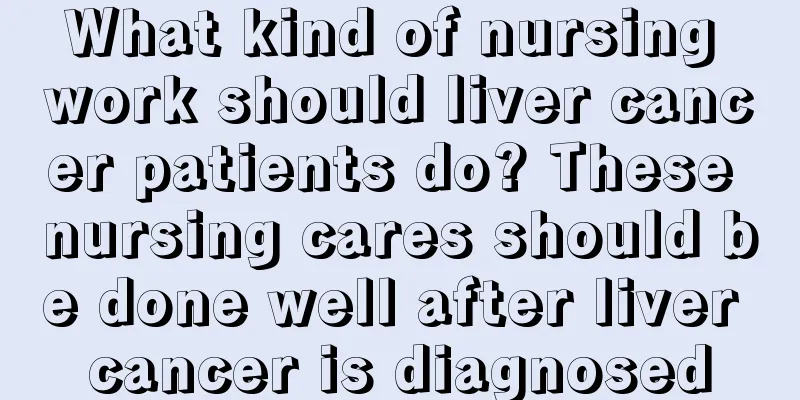Can laryngeal cancer be cured in the early and middle stages?

|
Laryngeal cancer is a malignant tumor that occurs in the larynx and originates from the laryngeal mucosal epithelial tissue. It is one of the common malignant tumors of the head and neck, and is divided into primary and secondary types. Primary laryngeal cancer refers to tumors that originate in the larynx, with squamous cell carcinoma being the most common. Secondary laryngeal cancer refers to malignant tumors from other parts of the body that metastasize to the larynx, which is relatively rare. The main symptoms of laryngeal cancer are hoarseness, dyspnea, cough, dysphagia, cervical lymph node metastasis, etc. People at high risk should pay attention to quitting smoking, drinking moderately, and taking preventive measures. Early detection and early diagnosis and treatment are very important for reducing the harm of laryngeal cancer. On the one hand, it can improve the patient's postoperative survival rate, and on the other hand, it is possible to preserve the pronunciation function of the larynx as much as possible and reduce postoperative complications. Laryngeal cancer is divided into glottic, supraglottic, and subglottic types according to the location. Different sites of disease cause different symptoms, especially in the early and middle stages. Hoarseness occurs in the early stages of glottic laryngeal cancer, which may be mild or severe at the beginning, and then becomes persistent. It cannot be relieved by taking medicine, accompanied by cough. When coughing violently, blood can be seen in the sputum; there may also be a foreign body sensation in the throat; in the middle stage, there may be difficulty breathing after activities, wheezing in the throat during sleep, etc. Supraglottic laryngeal cancer: Because tumors in the supraglottic area generally do not affect pronunciation, early supraglottic laryngeal cancer often has no symptoms, and some patients are accidentally discovered during physical examination. The most common symptom is a foreign body sensation in the throat, which cannot be vomited out or swallowed. Symptomatic medication can achieve temporary relief; when the tumor develops to the middle stage, swallowing discomfort and pain may occur, which may radiate to the base of the ear. You should see a specialist in time for a laryngoscopy. Subglottic laryngeal cancer: less common, often without any symptoms in the early stage, or only with a foreign body sensation in the throat and occasional hoarseness; hoarseness, dyspnea, wheezing at night, etc. are common in the middle stage. Late stage of type III laryngeal cancer: hoarseness, dyspnea, cough, blood in sputum, dysphagia, etc. are common in the late stage of laryngeal cancer, and are sometimes misdiagnosed as asthma. Laryngeal cancer is divided into glottic, supraglottic, and subglottic types according to the location. Different sites of disease cause different symptoms, especially in the early and middle stages. Hoarseness occurs in the early stages of glottic laryngeal cancer, which may be mild or severe at the beginning, and then becomes persistent. It cannot be relieved by taking medicine, accompanied by cough. When coughing violently, blood can be seen in the sputum; there may also be a foreign body sensation in the throat; in the middle stage, there may be difficulty breathing after activities, wheezing in the throat during sleep, etc. Supraglottic laryngeal cancer: Because tumors in the supraglottic area generally do not affect pronunciation, early supraglottic laryngeal cancer often has no symptoms, and some patients are accidentally discovered during physical examination. The most common symptom is a foreign body sensation in the throat, which cannot be vomited out or swallowed. Symptomatic medication can achieve temporary relief; when the tumor develops to the middle stage, swallowing discomfort and pain may occur, which may radiate to the base of the ear. You should see a specialist in time for a laryngoscopy. Subglottic laryngeal cancer: less common, often without any symptoms in the early stage, or only with a foreign body sensation in the throat and occasional hoarseness; hoarseness, dyspnea, wheezing at night, etc. are common in the middle stage. Late stage of type III laryngeal cancer: hoarseness, dyspnea, cough, blood in sputum, dysphagia, etc. are common in the late stage of laryngeal cancer, and are sometimes misdiagnosed as asthma. Early and middle stage laryngeal cancer can be treated with minimally invasive oral surgery, radiotherapy, laryngeal slit surgical resection or open surgery. The 5-year survival rate of surgical treatment of early and middle stage laryngeal cancer can reach 90%, and the recurrence rate is low. In daily life, pay attention to not eating spicy food, such as raw onions, ginger, raw garlic, peppers, etc., do not eat seafood, mutton, dog meat, etc., and eat more fresh vegetables and fruits, which is very beneficial to recovery. |
<<: How to treat late-stage laryngeal cancer without sleep
>>: The harm of brain fibroma and the impact of brain fibroma
Recommend
Is rectal cancer definitely hereditary?
In life, many people are often troubled by rectal...
Is squatting aerobic or anaerobic
More and more people like to go to the gym for tr...
Does a nodular goiter require surgery?
Thyroid nodules are a common disease, which mainl...
What causes rotavirus
Rotavirus is a common virus. When a person is inf...
Why does drinking milk on an empty stomach cause stomach pain in the morning?
Milk is a drink that is deeply loved by people in...
What is the effective treatment for colonic stenosis?
Patients should pay attention to how colon stenos...
Does drinking tea really cause spots?
Nowadays, few young people have the habit of drin...
How to prevent the occurrence of liver cancer? There are two major methods to prevent liver cancer
Liver cancer is one of the most common malignant ...
What should I do if I lose a tooth
The number of teeth in the human body is generall...
Fetal heart rate 125 means boy or girl
The fetal heart rate was 125, which is generally ...
What to do if your hands and feet sweat a lot
When your hands and feet sweat a lot, you need to...
The function of pollen
Pollen can have anti-aging, immune-enhancing, gas...
What causes lymphoma and what are the diagnostic criteria?
Lymphoma is a type of cancer. When treating lymph...
Outdoor barbecue material list
With the quickening pace of life, people are unde...
10 hydration misunderstandings that will ruin your body
Daily hydration is for health, but do you know? W...









